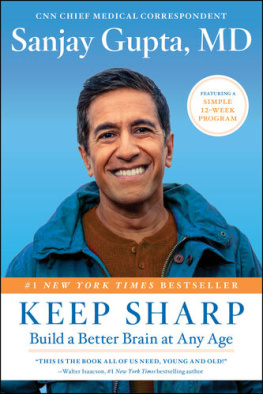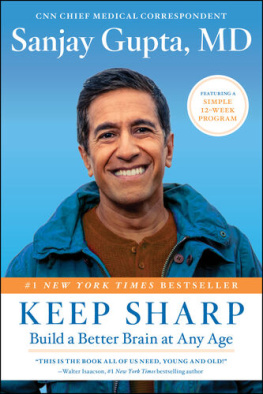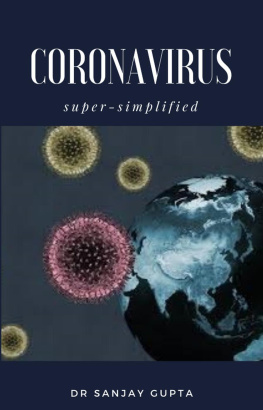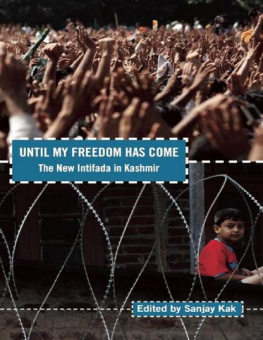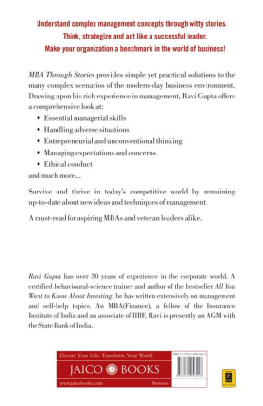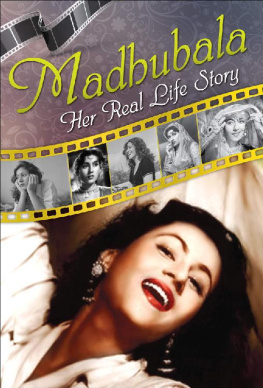hhumpert - Cheating Death, Sanjay Gupta
Here you can read online hhumpert - Cheating Death, Sanjay Gupta full text of the book (entire story) in english for free. Download pdf and epub, get meaning, cover and reviews about this ebook. genre: Art. Description of the work, (preface) as well as reviews are available. Best literature library LitArk.com created for fans of good reading and offers a wide selection of genres:
Romance novel
Science fiction
Adventure
Detective
Science
History
Home and family
Prose
Art
Politics
Computer
Non-fiction
Religion
Business
Children
Humor
Choose a favorite category and find really read worthwhile books. Enjoy immersion in the world of imagination, feel the emotions of the characters or learn something new for yourself, make an fascinating discovery.

Cheating Death, Sanjay Gupta: summary, description and annotation
We offer to read an annotation, description, summary or preface (depends on what the author of the book "Cheating Death, Sanjay Gupta" wrote himself). If you haven't found the necessary information about the book — write in the comments, we will try to find it.
Cheating Death, Sanjay Gupta — read online for free the complete book (whole text) full work
Below is the text of the book, divided by pages. System saving the place of the last page read, allows you to conveniently read the book "Cheating Death, Sanjay Gupta" online for free, without having to search again every time where you left off. Put a bookmark, and you can go to the page where you finished reading at any time.
Font size:
Interval:
Bookmark:
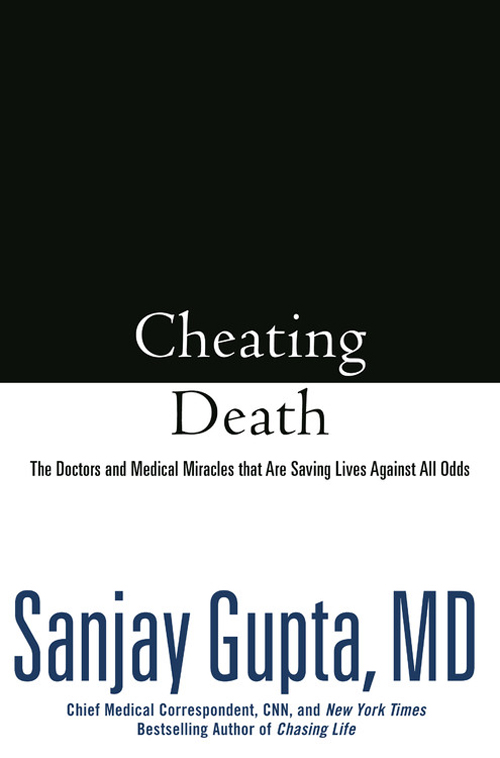
Copyright 2009 by Sanjay Gupta, MD
All rights reserved. Except as permitted under the U.S. Copyright Act of 1976, no part of this publication may be reproduced, distributed, or transmitted in any form or by any means, or stored in a database or retrieval system, without the prior written permission of the publisher.
Wellness Central
Hachette Book Group
237 Park Avenue
New York, NY 10017
Visit our website at www.HachetteBookGroup.com
www.twitter.com/grandcentralpub
Wellness Central is an imprint of Grand Central Publishing.
The Wellness Central name and logo are trademarks of Hachette Book Group, Inc.
First eBook Edition: October 2009
ISBN: 978-0-446-55876-1
For those living at the edge of a new frontier, working tirelessly to push forward the line between life and death. And for Sage, Sky and Soleil, the reasons I cheat death every day. They know it is not about eternal life, but about an extraordinary life.
I dont want to achieve immortality through my work.
I want to achieve it through not dying.
Woody Allen
I M GOING TO let you in on a little secret: When the heart stops beating, its not the end. In fact, you might say that your troubles have only just begun. As it turns out, life and death is not a black-and-white issue. There is a gray zonea faint no-mans-land where you are neither truly dead nor actually alive. In order to control it, in order to cheat death, we have to first better understand it.
T HE LAST THING Zeyad Barazanji remembers is the silence. Thirty seconds earlier, he had been watching election returns on CNN, his head turned up from the treadmill, where he was huffing and puffing through his daily afternoon workout. His attention had drifted from the television to the sound of his own pounding feet, the whir of the machine, and his rasping breath as he strained to match his usual pace. That Tuesday, it felt like he was running uphill, and Barazanji cut it short, turning off the machine after only twenty minutes of jogging. A retired literature professor, Barazanji was in a bustling gym near his home in the Spuyten Duyvil section of the Bronx, surrounded by the banter of his neighbors and the clanking of weights. But then, nothing. Silence.
He doesnt remember what happened next, only what people told him later. One woman will never forget it. One minute she was working out, and the next there was a blur in the corner of her eye. The wiry, older man with the white undershirt and headband crumpled in a heap at the foot of the adjacent treadmill. At least a dozen people saw him go down. Two called 911 from their cell phones. An athletic trainer, the gyms manager, Juan Echevarria, grabbed the automatic defibrillator off the wall and rushed to Barazanjis side.
Elbowing the crowd aside, Echevarria kneeled and placed the defibrillators electrodes on Barazanjis chest. Upon getting a signal from the device, he sent a shock into the chest of the unconscious man. Two successive bursts of electricity200 joules apieceshook the crumpled body. Each jolt ran through the beaded sweat on Barazanjis chest, through the breastbone, and into his still heart, shocking the muscle into a contraction. Another contraction followed, and then another. As the trainer held his breath, Barazanjis heart caught a beat of its own. The heartbeat was back. The line between life and death had shifted just enough.
The professor groaned and remained senseless, but his heart was once again sending weak pulses of blood through his sixty-three-year-old arteries. About four minutes later, a team of emergency medical technicians raced across the basketball court, stretcher in hand, to Barazanjis side. Two minutes later, a breathing tube was down his throat, he was on the stretcher, and the paramedics were sweeping toward the exit.
W ERE USED TO thinking about dying in stark terms: dead or alive. Youre here and then youre gone. In our imagination, this is how the moment of death plays out: The villain or hero or soldier gasping last words, stretching out a hand until his eyes roll back in his head and we know its all over. Or the cancer patient surrounded by family. A light flickers behind her eyes and then goes out. Youve read it in a thousand stories, seen it in a thousand movies, a hundred episodes of ER. The alarm sounds. The monitor flatlines. Time of death, 2:15 a.m.
It only takes a few minutes for life to slip away. Without a heartbeat, circulation slows to a halt. Blood no longer flows to your brain or any other organ. It takes just a couple of minutes before everything goes dim, and youre blissfully unaware of the catastrophe unfolding inside your body. Starved of blood, the first organ to suffer is the brain, which in happier times consumes about 20 percent of all oxygen the body takes in, though it constitutes just 2 percent of our body mass. After ten seconds without oxygen, the brains function slows. Without oxygen or signals from the brain, other organs break down as well. Diaphragm muscles no longer contract and release to bring in air. The kidneys stop filtering blood. At the same time, an elaborate chain of chemical reactions triggers a breakdown in cells throughout the body.
This is the process of dying. Whether because of a car accident, a blockage in an artery, or a tumor somewhere in your body, it is generally understood that when the heart stops beating, life has ended. I have seen this play out more times than I care to remember. The first time, I was a third-year medical student at the University of Michigan. The patient was not much older than I was. I remember the call coming over the emergency radio: Twenty-three-year-old unrestrained driver in an MVA [motor vehicle accident], found with the windshield starred and steering wheel bent. Even then, I knew those details were important; it takes a lot of force to bend a steering wheel with your chest or smash a windshield with your head. I remember the trauma surgeons, neurosurgeons and orthopedic surgeons descending on this young man. They attempted to replace blood, stop bleeding and relieve pressure in his brain. It was a whirlwind of activity until his heart stopped. And then everything else stopped, too. Everyone knew that was the end. After all, thats what we were taught in medical school and throughout our training. But what if it doesnt have to be that way? What if there were a way to give that twenty-three-year-old man and millions like him just a little more time, to shift the line between life and death? Ever since I watched that young man die, I have pondered that very question: can we move the line?
S URROUNDED BY FRIENDS and family in his Bronx apartment, Zeyad Barazanji told me his story of cheating death in a warm, friendly way. Barazanji, a translator and retired Columbia professor, immigrated here from Syria back in the 1970s. His two-bedroom apartment was filled with artwork and mementos from a lifetime of traveling between New York and the Middle East. A delicious smell was in the air; his wife Raoua was whipping up a feast of Syrian delicacies and dinner was almost ready. I leaned in to listen over the buzz of activity and clinking glasses in the kitchen. We were interrupted more than once as Barazanji got up to answer the door, clapping friends on the back and hanging their coats.
It was hard to believe that this man, so full of life, was dead not long ago, but thats exactly what happened. His heart pumped no blood, his brain sent no signals, he thought no thoughts. Make no mistakethis is death. But maybe not the way we tend to think about it.
For all thats been said about immediate deathIm sorry, she was killed instantlyin truth, theres no such thing. As a doctor, I can assure you that when the heart stops beating, its not the end. Death is not a single event, but a process that may be interrupted, even reversed. And heres the exciting partat any point during this process, the course of what seems inevitable
Font size:
Interval:
Bookmark:
Similar books «Cheating Death, Sanjay Gupta»
Look at similar books to Cheating Death, Sanjay Gupta. We have selected literature similar in name and meaning in the hope of providing readers with more options to find new, interesting, not yet read works.
Discussion, reviews of the book Cheating Death, Sanjay Gupta and just readers' own opinions. Leave your comments, write what you think about the work, its meaning or the main characters. Specify what exactly you liked and what you didn't like, and why you think so.

